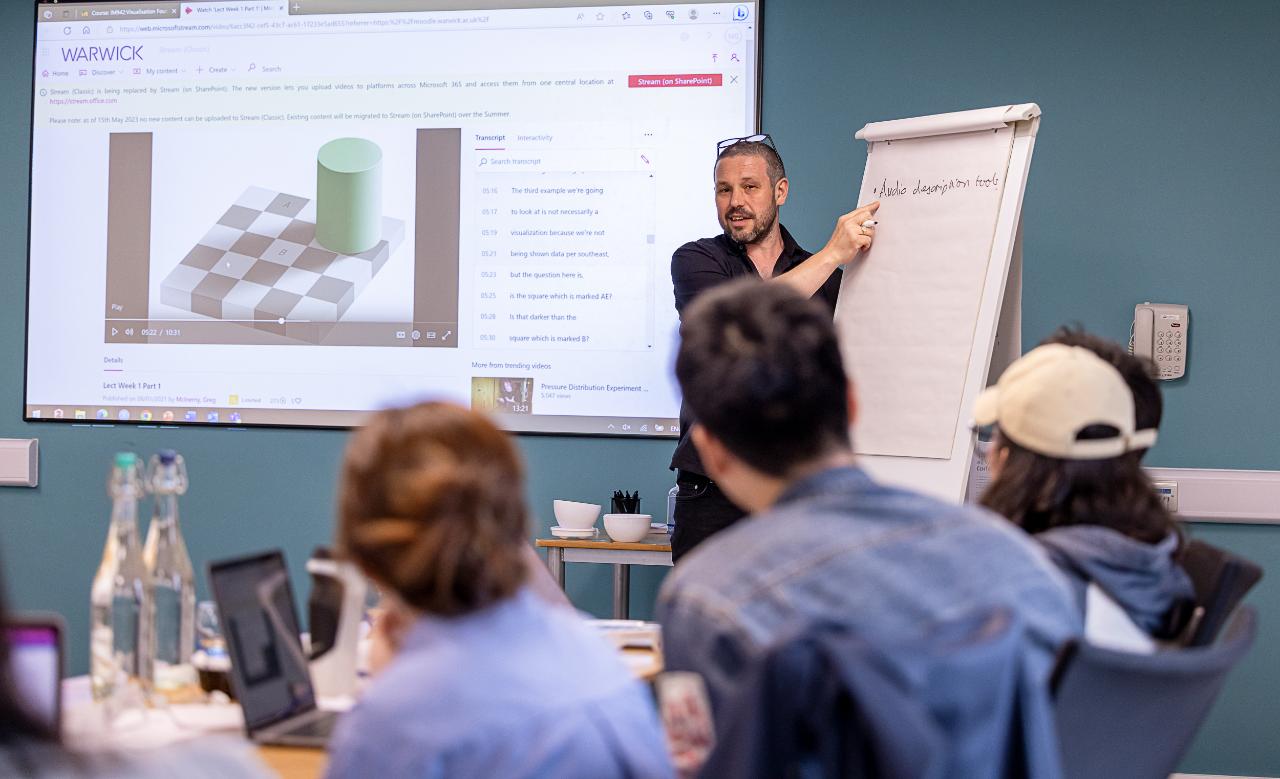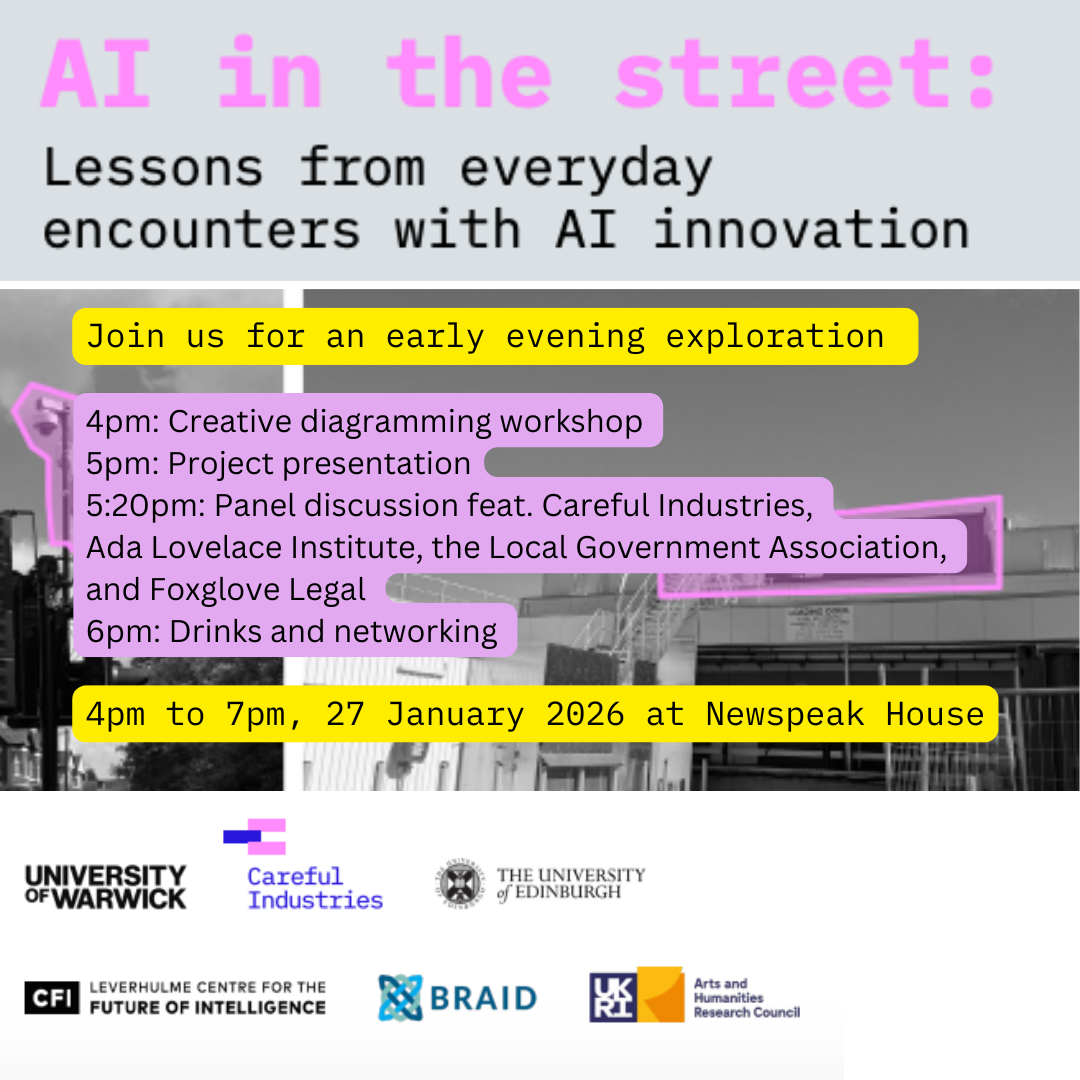News Archive
Applications open for DIVERSE CDT 2026/27 PhD Scholarships!
The EPSRC Centre for Doctoral Training in Diversity in Data Visualization (Diverse CDT) is a pioneering, fully funded four-year PhD programme jointly delivered by City St George’s, University of London and the University of Warwick.
Applications for PhD studentships with Diverse CDT are now open for 2026 entry.
We have rolling deadlines across several months and the first deadline for submitting an application is 4pm, GMT on 30th January 2026.
Further details here: https://warwick.ac.uk/fac/cross_fac/cim/apply-to-study/phd-programmes/diverse-cdt/
New papers on interdisciplinary cyber security
CIM's Matt Spencer has published two new open access papers exploring interdisciplinarity in cyber security.
The embeddedness of security: Theorising quality uncertainty in markets for secure software
Critical interdisciplinary cybersecurity: Thinking through securing, thinking through fixing
The first, in the conference proceedings for the New Security Paradigms Workshop (NSPW), explores opportunities to bring a sociological framing to bear on security economics; the second, in Information, Communication and Society introduces a Special Issue focused on 'the fix' as a trope for interdisciplinary cyber security.
Research talk by Prof Simone Stumpf, University of Glasgow - "Why we can’t have nice things – the important role of Responsible AI"
Join us for a research talk by Prof Simone StumpfLink opens in a new window from University of Glasgow with the title "Why we can’t have nice things – the important role of Responsible AI" on Tuesday, January 13th 2026, 4pm - 5:30pm at the Social Sciences Building, Room S0.13.
Here is a brief abstract of the talk:
Many AI technologies are now being integrated into everyday life. However, how can we ensure that AI is ‘responsible’? In this talk, I will review current efforts at developing responsible AI, focusing on transparency, fairness and auditing, and offer suggestions at how we can improve approaches in this area.
Diversity and Cyber Security Expertise - new policy report from CIM academics
Very pleased to announce the release of our report on cyber security expertise and diversity. You can read the web version here:
https://warwickcim.github.io/cyberexpertisediversity_survey/
This was a collaboration between Matt Spencer, Carlos Cámara-Menoyo and Timothy Monteath, with the support of the Research Institute for Sociotechnical Cyber Security.
We make the case for:
> more extensive data collection to ensure that the implications of professionalisation for diversity in cyber security are well understood,
> enhancing the breadth of the specialisms recognised by the Cyber Security Council to better represent fields such as human factors or security awareness,
> better interdisciplinary engagement with the CyBOK framework to ensure that social and cultural expertise are recognised, and,
> empirical analysis of cyber security problems to ensure that specialisms are aligned with practical needs.
Virtual CIM PG open day session - 2nd Dec
Data, Digital, Visualisation and AI in Society and Culture: Interdisciplinary courses at CIM

AI innovation missing the mark for local communities, University of Warwick report warns
Communities across the UK feel that artificial intelligence (AI) is being built around them, not for them, says a major new report led by the University of Warwick and Careful Industries.

LIVE PODCAST: Media and the Power of Knowledge w/ Prof. Steve Fuller
 🗓️ Wednesday 26 November 2025 (Term 1, Week 8)
🗓️ Wednesday 26 November 2025 (Term 1, Week 8)
🕔 5:00PM - 6:30PM
📍FAB 0.20 (Jim Davis Studio), Faculty of Arts Building
🎟️ RSVP: https://forms.office.com/e/x1QfsAbAd6
Join Prof. Steve Fuller for the launch of his new book, Media and the Power of Knowledge, and discover how access and control over media - both past and present - has shaped knowledge.


